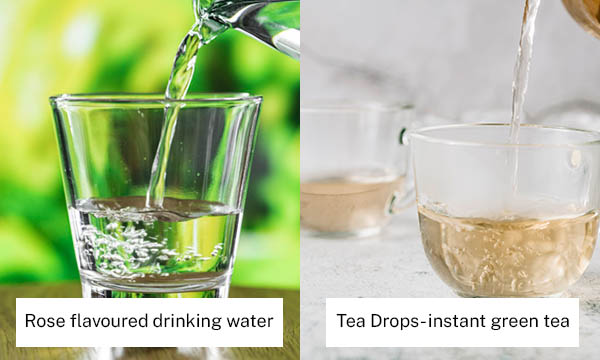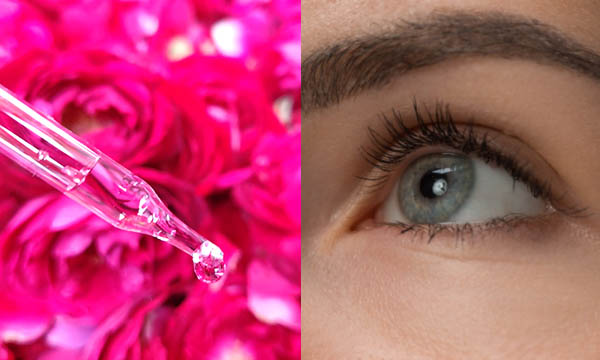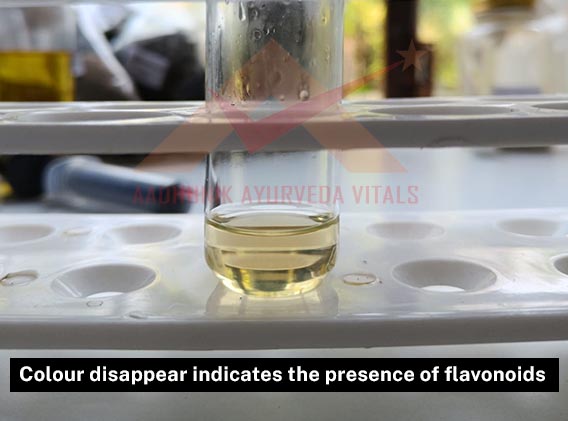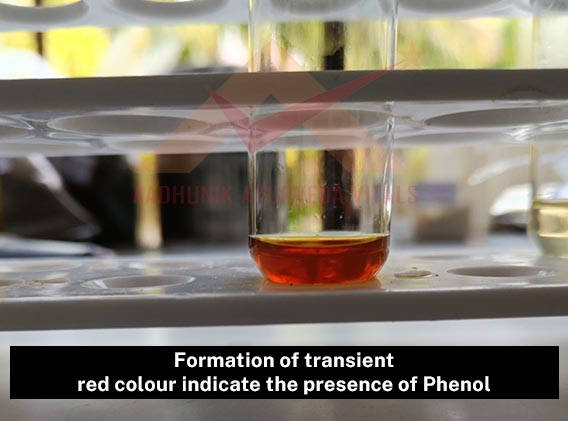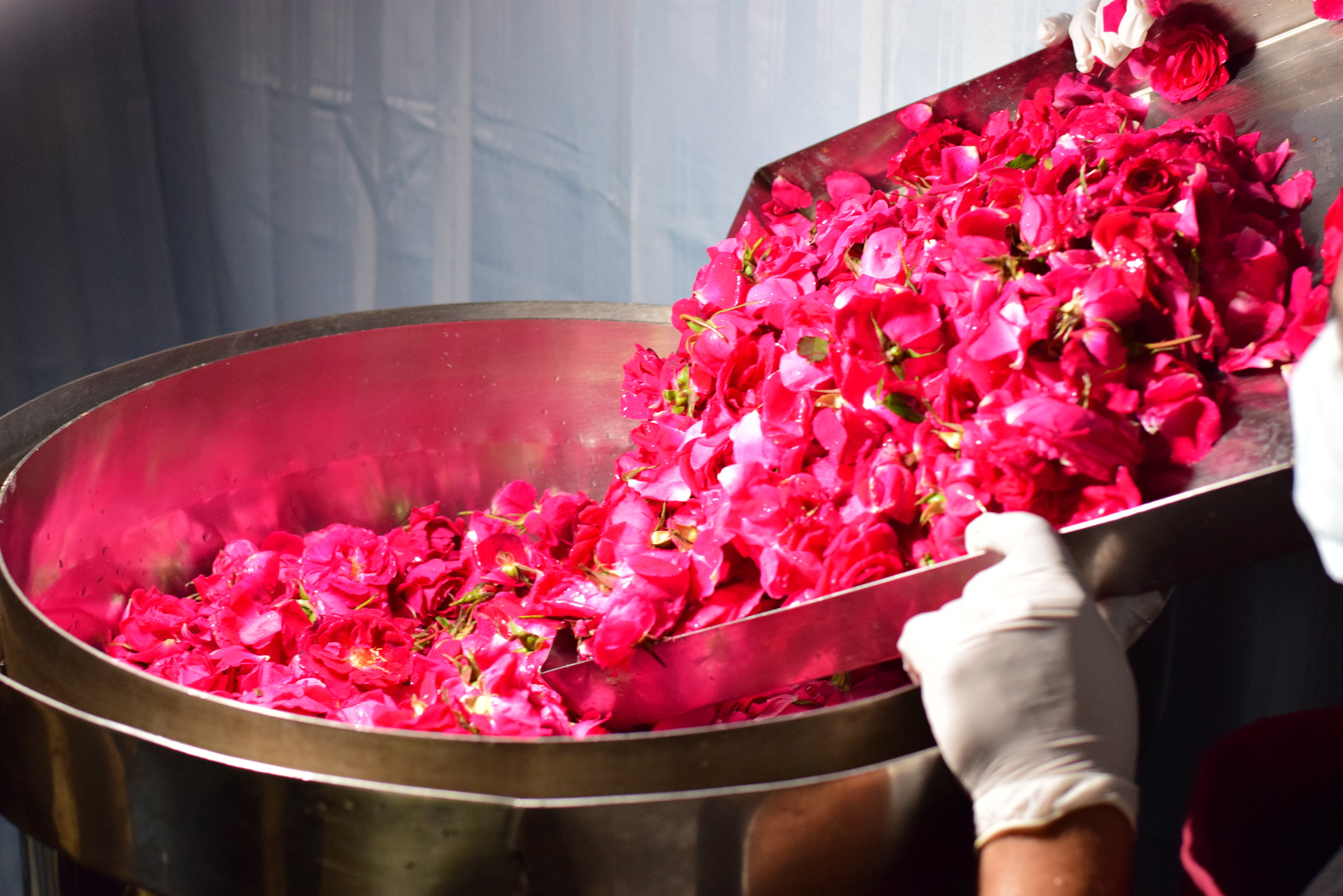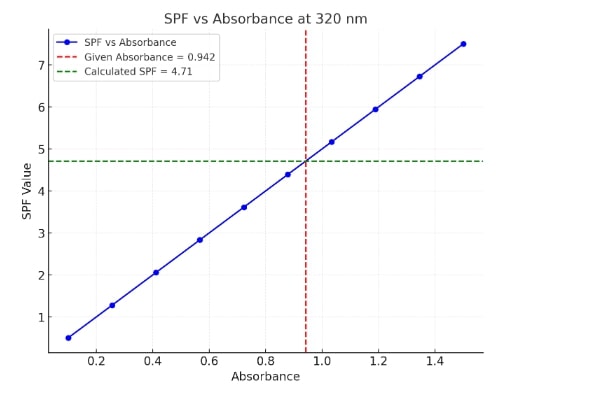Distillation for the Production of Rose Water
Purpose of the test
For the distillation for the rose water/hydrosol, analysis for the figuring out of the chemical characteristics and for its microbial charge was performed by using 300ml of the final rose water. The first 100 ml of distillate were analysed for the presence of its microbial content. A second 100 ml sample was analysed for its physicochemical attributes. Finally, evaluation was made at the rose water in order to find the melting point and any remaining distillate.
Results and Discussion
Result on the analysis for the rose water. In the first sample of 100 ml of rose water, the results of the microbial content analysis are shown in Table 2.1 and declare that there is no concern as for these parameters. It should be emphasized that the analyses were also repeated after a one and a half year period on the same sample produced during the same time of the year with precisely the same results. These results suggest that the probability of growth of microbial charge doesn’t even exist even during storage of the rose water in the sterile glass bottle of 100ml. The physicochemical attributes of rose water are suggested by the results of an analysis of a second 100 ml sample in Table 2.2.
Table 2.1 Result of microbial analysis in a sample of rose water
| Microbiological Analysis |
Result |
Units |
Repot Values |
Method |
| E.Coli |
| 10 |
Cfu/ml |
1000 |
Laboratorial |
| Staphylococcus aureus |
| 10 |
Cfu/ml |
100 |
Laboratorial |
Tabel 2.2 Result of physicochemical attributes of analysis in a sample of rose water
| Physicochemical Analysis |
Rose Water |
Result |
| Appearance |
Liquid |
Complies |
| Colour |
Clear, colourless |
Complies |
| Odour |
Aroma resembling to rose |
Complies |
| Solubility |
Soluble in water & alcohol insoluble in fat |
Complies |
| Total Dissolved Solid (TDS) |
50-150 |
115 ppm |
| pH(25°) |
3.5-7.5 |
3.7 |
| Refractive Index |
1.320-1.345 |
1.332 |
| Specific Gravity @ 20° |
0.982-1.059 |
0.994 |
| Acidity |
4.96% |
Complies |
| Vitamin C (mg/L) |
12, 900mg/L |
Complies |
| Flavonoid |
(+ve) |
Highly present |
| Phenols |
(+ve) |
Highly present |
| Tannins |
(+/-) |
Present but in lower amount |
| Alkaloids |
(+/-) |
Present but in less quantity |
| Triterpenoids |
(+ve) |
Highly present |
| p-coumaric acid |
(+ve) |
Highly present |
- Appearance- The rose water is a liquid form similar to water. That is the reason it is water soluble.
- Colour- The rose water is colourless. It is never pink in colour.
- Odour- The odour of a rose water is derived from the rose petals. The odour is similar to the aroma of the fresh rose. However the odour changes from season to season with variation in its volatile compounds due to various factors like - temperature, rainfall, soil health etc.
- Solubility- It is soluble in water and alcohol but insoluble in fats/oils.
- pH- A pH of 7 is neutral, above 7 the pH is alkaline and below 7 the pH is acidic.It is undiluted rose water.
- Vitamin C in Rose Water has a concentration between 8-20%.
- TotalDissolve Solid(TDS) generally, the TDS between 50-150 is considered as the most suitable and acceptable. Samples with a TDS level of 500 and above, can cause excessive scaling and corrosion in it and are not safe for drinking purposes.
- Specific Gravity is used to define the weight of a liquid as compared to density at a specific temperature. If the specific gravity for a rose water sample is less than 1, that means the material will flow in the reference substances, and if the water sample is more than 1, that means the material will sink in the reference substances.
- Acidity/acidic rose water are acidic in nature as it has a low pH, as opposed to a base, which has higher pH.
- Flavonoids are the secondary metabolites which can be very abundant in plants, fruits that are liable for the fragrance and flavour characteristics.
- Alkaloids are a class of organic compounds composed of carbon, hydrogen, and usually oxygen that are often derived from plants and are responsible for medicinal properties like antiviral, antifungal, antioxidant etc.
- Tannins is a type of chemical found in plants and in certain foods. It has antioxidant properties and may promote good health.
- Phenols are closely associated with the nutritional quality of fresh plants. They cause the formation of undesirable colour and flavour and loss of nutrients in plants.
- Triterpenoids are a diverse group of natural products in plants that are regarded as compounds that act as defences against pathogenic microbes.
- p-coumaric acid is a natural metabolic substance contained in many edible plants. It helps in reducing skin hyperpigmentation.
According to the analysis made in the samples of the distillate rose water of plant Rosa centifolia, it’s far concluded that the rose water contains numerous natural and organic compounds that render it an excellent essence water, competitive to all existing market rose water. All our results indicate that the distillate rose water is of high quality and can be used for different purposes. The results can interpreted to use in other field by specialist technicians.
Conclusion
The present review of the scientific literature provides a systematic summary of the chemical composition and different pharmacological activities of Rose water.
The analysis of the scientific literature in the review shows that hydrosols of rose and their main compounds have promising biological potential to act as natural healer.
Natural products have always played a pivotal role in new drug development due to their valuable therapeutic property and hence many more clinical research is required to for future to make use of rose water as valuable addition to human health.
PHOTO PROTECTIVE INVESTIGATION OF ROSE WATER
Introduction
Rosa centifolia, commonly known as the cabbage rose or Provence rose, is a fragrant flowering plant belonging to the Rosaceae family. This species is widely cultivated for its aromatic petals, which are used in perfumery, skincare, and traditional medicine. Native to parts of Europe and the Middle East, Rosa centifolia is prized for its rich photochemical profile, which includes phenolic acids, flavonoids, tannins, and essential oils. These bioactive compounds contribute to its diverse therapeutic properties, such as antioxidant, anti-inflammatory, and antimicrobial activities. Historically, it has been used to soothe skin irritations, enhance hydration, and combat oxidative stress. Recent studies have also explored its potential in providing photoprotection, making it a promising natural ingredient for skincare formulations. The petals and their distilled product, rose water, offer a sustainable and multifunctional approach to skin health, particularly in protecting against environmental aggressors like UV radiation.
Materials and Methods
Sample Collection: Samples of Rosa centifolia were collected from northen plains Ganges Region known for their cultivation of this species. Fresh flowers of Rosa centifolia were collected at peak bloom from cultivated gardens to ensure optimal quality for extraction.
Preparation of Extracts: The flowers were subjected to steam distillation to produce rose water. The process begins with freshly harvested rose petals, which are carefully cleaned and placed in a distillation chamber. Instead of boiling, steam is generated separately in a boiler and then introduced into the chamber containing the petals. As the steam passes through the petals, it gently breaks down their cellular structure, releasing volatile aromatic compounds. The steam, now carrying these valuable compounds, moves into a cooling system where it condenses back into liquid form. This liquid consists of hydrosol (rose water), which contains the water-soluble aromatic properties of the rose. To ensure purity, the rose water may undergo filtration before being bottled for use. This steam distillation process ensures that the natural aroma, nutrients, and therapeutic properties of roses are retained, and making it a valuable ingredient for skincare, culinary, and wellness applications.
SPF Evaluation: The SPF of the Rosa centifolia extracts was assessed using an in vitro spectroscopic method. The absorbance of UV radiation by the extracts was measured at specific wavelengths (280-320 nm) to determine their protective efficacy.
SPF Calculation: The SPF is calculated using the formula:
[{SPF} = {CF} \times \sum_{290}^{320}{EE}(\lambda) \times I(\lambda) \times \{Abs}(\lambda) ]
Where CF is the correlation factor (set to 10), EE (λ) represents the erythemal effect of radiation at a given wavelength, I (λ) is the intensity of the radiation, and Abs (λ) is the absorbance at that wavelength.
Absorbance Measurement: The absorbance values of the extracts were recorded at various UV wavelengths to evaluate their ability to absorb harmful UV rays.
Results and Discussion
IN VITRO SUN PROTECTING FACTOR (SPF) OF ROSE WATER SAMPLE
Given the data:
- Absorbance (A) = 0.942
- Erythemal Effect (EE) = 0.5
- Intensity (I) = 1.0
- Correlation Factor (CF) = 10
SPF = CF × (A × EE × I)
In a study conducted on samples of Rosa centifolia, it was found that the extracts exhibited with a specific SPF value, indicating the potential as natural sunscreens. For instance, one sample demonstrated an SPF value of 4.71, suggesting that it can block approximately 85% of UV radiation from penetrating the skin.
This protective effect is attributed to the presence of bioactive compounds such as flavonoids, saponins, and other polyphenolic compounds, which are known for their antioxidant properties and ability to neutralize free radicals generated by UV exposure. The findings highlight the potential of Rosa centifolia extracts in cosmetic formulations aimed at photo protection, making them a valuable addition to the growing market for natural sunscreens. The study emphasizes the importance of further research to explore the full range of benefits offered by these extracts in skin care applications.
Conclusion
Rosa centifolia demonstrate promising potential as a natural ingredient in sunscreen formulations. The significant SPF activity, along with its antioxidant properties, highlights its role in protecting the skin from UV radiation. This study supports the utilization of Rosa centifolia in cosmetic products aimed at photo protection and skin health.


